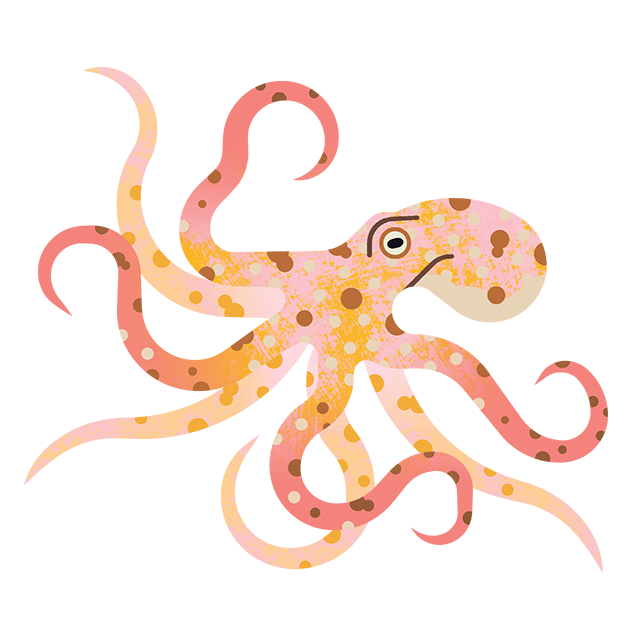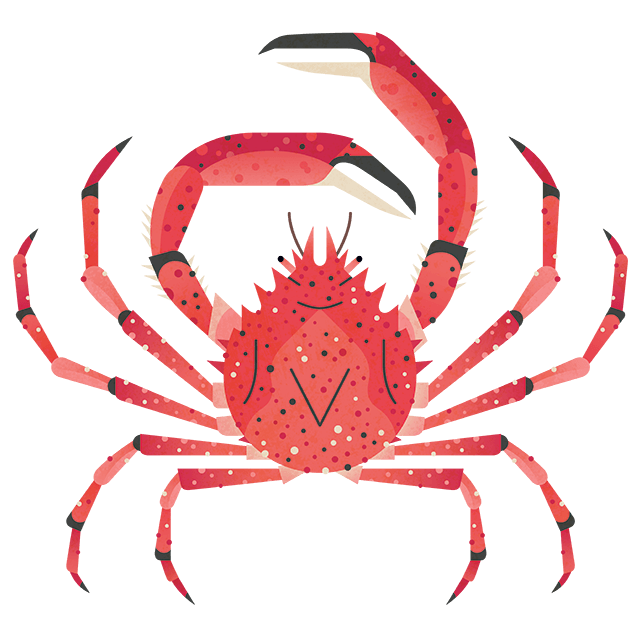
Five facts about octopuses (not octopi)
2 minute read
Octopuses are amazing. Here are five things you may not know about these remarkable creatures.
They can be bigger than a bus
The biggest giant Pacific octopus ever recorded reached a weight of 600 pounds. That’s nearly four times the weight of the average person. This huge octopus was also 30ft across – longer than a London bus.
The smallest type of octopus is called an octopus wolfi, weighing only a gram.
They can walk on land
Octopuses can use their tentacles to walk along the beach if they are trapped in a low tide or hunting for prey among the rock pools. After eating all the prey in one pool, they can pull themselves out of the water to go and find the next place to hunt.
If you see an octopus walking on land, make sure you give it plenty of space so you don’t frighten it. If you think something may be wrong, contact the British Divers Marine Life Rescue. Never attempt to put any marine animal back in the ocean without help or advice from the experts, as it may be sick or injured.
They are seriously smart

Credit: Mark Kirkland
Octopuses are clever. They can open jars (both from the inside and the outside). They can build a fortress of stones around them as they sleep to protect them from predators. And they are masters of camouflage – the mimic octopus impersonates a deadly sea snake to scare off predators and other species hide and protect themselves by carrying around a shell or coconut.
It’s not octopi
Did you notice the word octopuses in the title and cringe at our error? Actually, octopi is not the plural of octopus as is generally thought.
Octopuses are in trouble
They are more than 300 different species of octopus (that we know of). Like all marine life, they are seriously threatened by pollution, loss of habitat and over-fishing. The decline of octopuses also threatens the sharks, birds, whales, dolphins and fish that eat them. The marine food web is deeply interconnected, so protecting every species counts.
If you’d like to help protect octopuses, here are some ideas:
- Use non-toxic cleaning products in your home and at work.
- Reduce your consumption of fish and only buy fish recommended in our Good Fish Guide.
- Introduce more organic food into your diet, which is not sprayed with pesticides that run off into rivers and the sea.
- Reduce how much single-use plastic you use.
- Wash synthetic clothes in a protective washing bag to prevent microfibres ending up in the sea.
- Purchase goods in local shops to reduce the disturbing noise and carbon emissions associated with international shipping.
- Support us by donating or volunteering at a beach clean.



